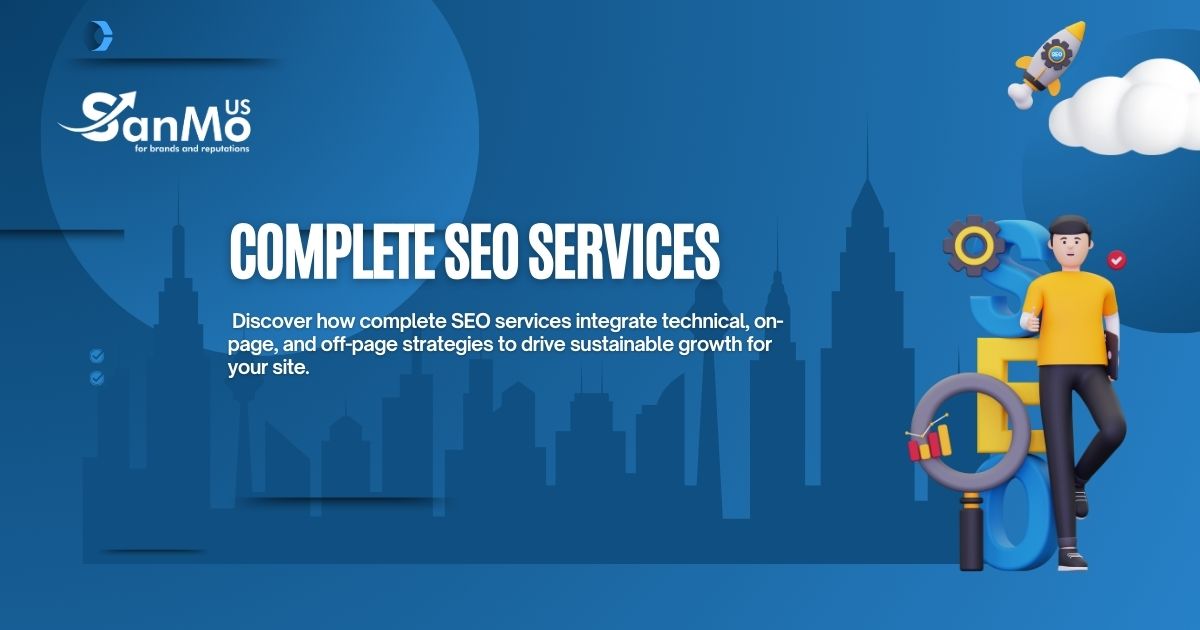Starting a website can feel overwhelming, especially when you encounter technical terms like “domain hosting services.” If you’re launching your first website or looking to switch providers, understanding these services is crucial for making informed decisions about your online presence.
This guide breaks down everything you need to know about domain hosting services, from basic definitions to choosing the right provider for your needs. By the end, you’ll have the knowledge to confidently navigate the world of web hosting and get your site online successfully.
Understanding Domain Hosting Services
Domain hosting services provide the infrastructure that makes your website accessible on the internet. Think of it as renting space on a server where your website files live, combined with the address (domain name) that visitors use to find you.
These services typically include two main components: web hosting and domain registration. Web hosting stores your website’s files, images, and databases on powerful computers called servers. Domain registration secures your website’s name (like yoursite.com) and connects it to your hosting space.
When someone types your domain name into their browser, the hosting service delivers your website’s content to their screen. This process happens in milliseconds, making it seem instantaneous to visitors.
Types of Domain Hosting Services
Shared Hosting
Shared hosting places multiple websites on a single server, sharing resources like CPU, memory, and storage. This option costs less but may result in slower performance during high-traffic periods. It works well for small businesses, personal blogs, and new websites with limited traffic.
Virtual Private Server (VPS) Hosting
VPS hosting divides a physical server into multiple virtual servers, giving each website dedicated resources. You get more control and better performance than shared hosting while maintaining cost-effectiveness. This option suits growing businesses that need more power but aren’t ready for dedicated servers.
Dedicated Hosting
Dedicated hosting provides an entire server exclusively for your website. You have complete control over server configuration, security settings, and resource allocation. Large businesses and high-traffic websites often choose this option for maximum performance and customization.
Cloud Hosting
Cloud hosting uses multiple connected servers to host your website, distributing resources across a network. If one server experiences issues, others automatically pick up the load. This redundancy ensures better uptime and scalability for websites with fluctuating traffic patterns.
Key Features to Look For
Uptime Reliability
Server uptime directly affects your website’s availability. Look for providers guaranteeing 99.9% uptime or higher. Even small amounts of downtime can impact your business, so reliable infrastructure is non-negotiable.
Security Measures
Strong security features protect your website from cyber threats. Essential security elements include SSL certificates, regular backups, malware scanning, and firewall protection. Some providers offer additional security services like DoS protection and security monitoring.
Customer Support
Technical issues can arise at any time, making responsive customer support crucial. Look for providers offering 24/7 support through multiple channels like phone, chat, and email. Check reviews to gauge the quality and helpfulness of their support team.
Scalability Options
Your hosting needs may change as your website grows. Choose providers that offer easy upgrades between hosting plans. This flexibility prevents the headache of migrating to a new provider when you need more resources.
Choosing the Right Provider
Assess Your Needs
Start by evaluating your website’s requirements. Consider factors like expected traffic volume, storage needs, technical expertise, and budget. A personal blog has different needs than an e-commerce store or corporate website.
Research Provider Reputation
Read customer reviews and testimonials from multiple sources. Pay attention to comments about uptime, support quality, and overall satisfaction. Independent review sites often provide more balanced perspectives than testimonials on provider websites.
Compare Pricing and Features
Don’t just focus on the lowest price. Compare what each package includes, such as storage space, bandwidth, email accounts, and additional features. Sometimes paying slightly more upfront saves money long-term through better performance and fewer issues.
Consider SanMo US Services
SanMo US offers comprehensive domain hosting services designed to meet various business needs. Their solutions combine reliable hosting infrastructure with competitive pricing, making them worth considering for your hosting requirements.
Common Mistakes to Avoid
Choosing Based on Price Alone
While budget matters, the cheapest option often comes with limitations. Poor performance, frequent downtime, or inadequate support can cost more in lost opportunities than you save on hosting fees.
Ignoring Backup Policies
Not all providers offer automatic backups, and some charge extra for this critical service. Ensure your chosen provider includes regular backups or plans to handle backups independently.
Overlooking Terms of Service
Read the fine print before committing. Pay attention to renewal rates, cancellation policies, and resource limitations. Some providers offer low introductory rates that increase significantly upon renewal.
Getting Started with Domain Hosting
Planning Your Domain Name
Choose a domain name that reflects your brand and is easy to remember. Check availability across multiple extensions (.com, .net, .org) and consider registering variations to protect your brand.
Setting Up Your Hosting Account
Once you’ve selected a provider, the setup process typically involves choosing your hosting plan, registering or transferring your domain, and configuring basic settings. Most providers offer setup assistance to guide you through this process.
Launching Your Website
After your hosting account is active, you can upload your website files or install a content management system like WordPress. Many providers offer one-click installations for popular platforms, simplifying the launch process.
Making Your Decision
Domain hosting services form the foundation of your online presence. The right provider ensures your website loads quickly, stays secure, and remains accessible to visitors around the clock.
Take time to research different providers and compare their offerings against your specific needs. Consider factors beyond price, including support quality, security features, and scalability options. A solid hosting foundation supports your website’s growth and success for years to come.
Ready to get started? Begin by listing your website’s requirements, then research providers that meet those needs within your budget. Your perfect hosting solution is waiting to power your online presence.








